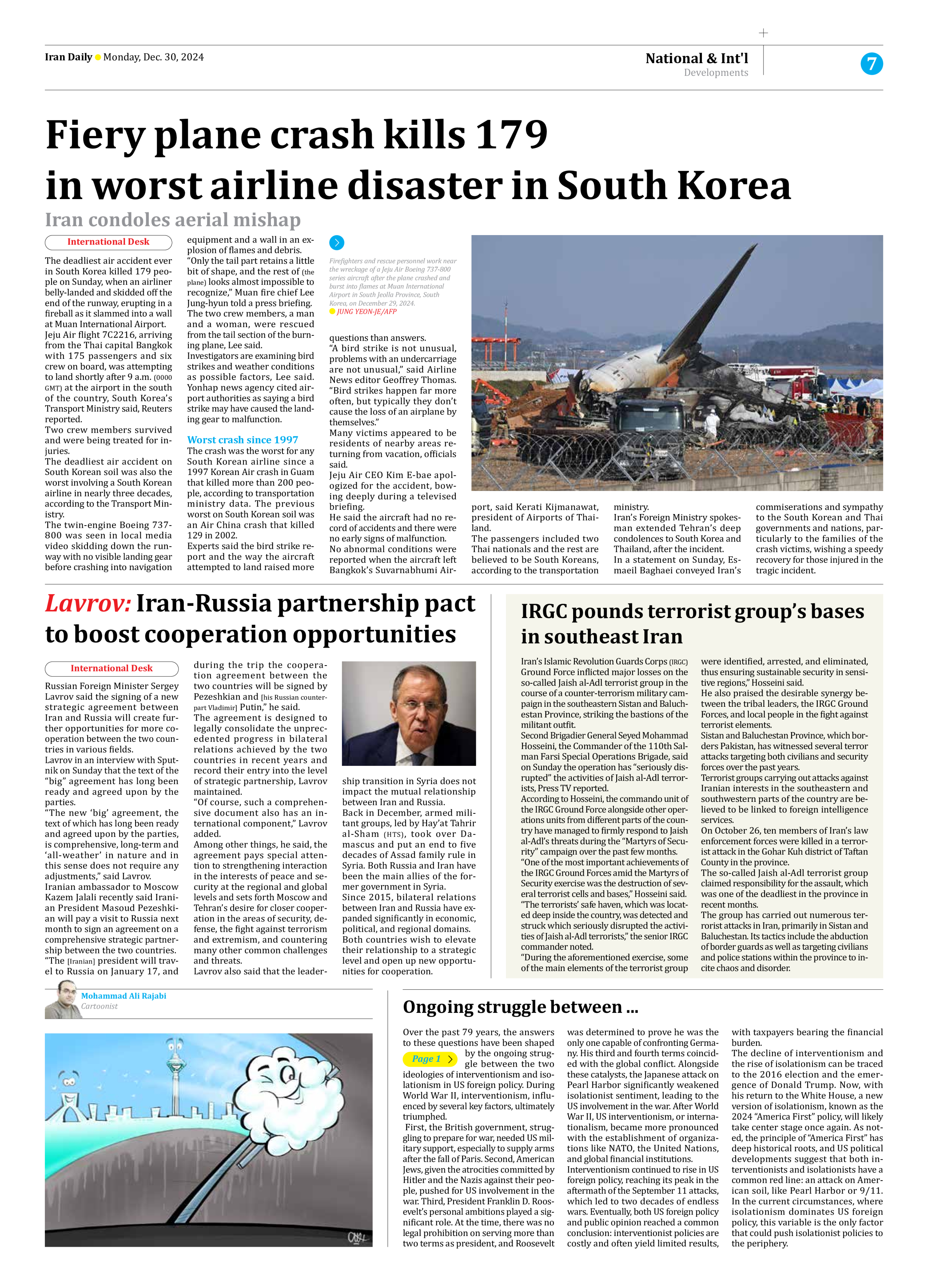
Fiery plane crash kills 179 in worst airline disaster in South Korea
Iran condoles aerial mishap
The deadliest air accident ever in South Korea killed 179 people on Sunday, when an airliner belly-landed and skidded off the end of the runway, erupting in a fireball as it slammed into a wall at Muan International Airport.
Jeju Air flight 7C2216, arriving from the Thai capital Bangkok with 175 passengers and six crew on board, was attempting to land shortly after 9 a.m. (0000 GMT) at the airport in the south of the country, South Korea’s Transport Ministry said, Reuters reported.
Two crew members survived and were being treated for injuries.
The deadliest air accident on South Korean soil was also the worst involving a South Korean airline in nearly three decades, according to the Transport Ministry.
The twin-engine Boeing 737-800 was seen in local media video skidding down the runway with no visible landing gear before crashing into navigation equipment and a wall in an explosion of flames and debris.
“Only the tail part retains a little bit of shape, and the rest of (the plane) looks almost impossible to recognize,” Muan fire chief Lee Jung-hyun told a press briefing.
The two crew members, a man and a woman, were rescued from the tail section of the burning plane, Lee said.
Investigators are examining bird strikes and weather conditions as possible factors, Lee said. Yonhap news agency cited airport authorities as saying a bird strike may have caused the landing gear to malfunction.
Worst crash since 1997
The crash was the worst for any South Korean airline since a 1997 Korean Air crash in Guam that killed more than 200 people, according to transportation ministry data. The previous worst on South Korean soil was an Air China crash that killed 129 in 2002.
Experts said the bird strike report and the way the aircraft attempted to land raised more questions than answers.
“A bird strike is not unusual, problems with an undercarriage are not unusual,” said Airline News editor Geoffrey Thomas. “Bird strikes happen far more often, but typically they don’t cause the loss of an airplane by themselves.”
Many victims appeared to be residents of nearby areas returning from vacation, officials said.
Jeju Air CEO Kim E-bae apologized for the accident, bowing deeply during a televised briefing.
He said the aircraft had no record of accidents and there were no early signs of malfunction.
No abnormal conditions were reported when the aircraft left Bangkok’s Suvarnabhumi Airport, said Kerati Kijmanawat, president of Airports of Thailand.
The passengers included two Thai nationals and the rest are believed to be South Koreans, according to the transportation ministry.
Iran’s Foreign Ministry spokesman extended Tehran’s deep condolences to South Korea and Thailand, after the incident.
In a statement on Sunday, Esmaeil Baghaei conveyed Iran’s commiserations and sympathy to the South Korean and Thai governments and nations, particularly to the families of the crash victims, wishing a speedy recovery for those injured in the tragic incident.







